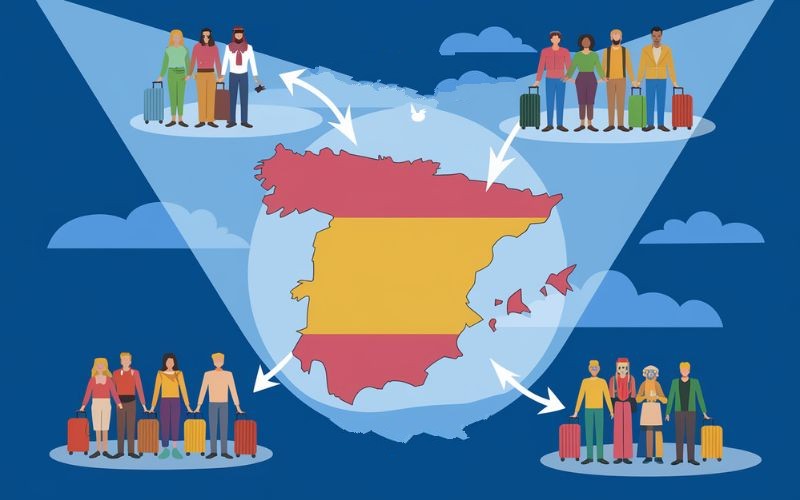
Why I Created "Try Before Moving" — And Why It Could Change Your Life By Kata Bene
What if you could live the Costa Blanca life for seven days before making one of the biggest decisions of your life? That's exactly why I created Try ...
10 mins read

For those of us living in Spain, the vibrant mix of cultures is part of daily life. From the Latin American communities enriching the cities to the Northern Europeans dotted along the coasts, Spain has become a magnet for people seeking a new life. It’s a topic that often comes up in conversation and, frequently, in heated political debates. A common narrative, repeated by some politicians and media outlets, suggests a direct and dangerous link: more migrants, they claim, inevitably leads to more crime.
But what if the opposite were true?
New data reveals a fascinating and powerful paradox that challenges these deep-seated prejudices. Over the past two decades, while Spain's foreign-born population has nearly doubled, the national crime rate has fallen to its lowest point ever recorded. This isn't a political opinion; it's a statistical reality that calls for a more informed, nuanced discussion. It's time to separate the facts from the fear.
To understand the present, we have to look at the past. The transformation of Spanish society over the last 20 years has been nothing short of remarkable.
These two datasets, when placed side-by-side, create a powerful counter-narrative. The doubling of the migrant population has not led to a wave of crime. On the contrary, it has coincided with the safest period in the country's recent history.
Critics of this view, however, often point to a different statistic: the overrepresentation of foreigners in the prison system. It’s a crucial point to address head-on, with context and expert analysis.
According to 2023 data, individuals without Spanish nationality accounted for 28% of all criminal convictions, despite making up only 14% of the total population. At first glance, this disparity seems to support the argument that foreigners are more prone to crime. However, sociologists and criminologists urge caution, pointing to a confluence of factors that explain this gap without resorting to prejudice.
These factors don't excuse criminal behaviour, but they provide essential context. The overrepresentation in conviction statistics is more likely a reflection of social vulnerability and policing patterns than of an inherent "criminality."
When we break down the data by specific types of crime, the picture becomes even clearer, further challenging the idea that foreigners are the primary drivers of crime.
This data does not imply that foreigners commit no crime; it simply demonstrates that the responsibility for the bulk of crime, including serious and common offenses, lies with the Spanish population itself.
It is also important to note that Spain's legal system has robust mechanisms for dealing with crimes committed by non-nationals. The law is clear: any foreigner sentenced for a crime can have their residency permit revoked and face deportation.
In 2024 alone, more than 3,000 foreigners were deported from Spain for reasons related to national security, averaging about eight people per day. This policy serves as a powerful deterrent and ensures that foreign nationals who commit serious offenses are held accountable, not only by the justice system but by immigration law as well.
The data paints a clear and consistent picture. Spain is a safer country today than it was 20 years ago, and this positive trend has occurred alongside a historic increase in its immigrant population. The narrative that migration fuels crime is a political fiction, not a statistical fact.
While complex social factors lead to an overrepresentation of foreigners in conviction rates, the vast majority of migrants are law-abiding residents who contribute to Spanish society. Furthermore, when we examine specific, serious crimes, it is clear that the problem is a societal one, not one that can be blamed on newcomers.
In an era of rampant misinformation, it is more important than ever to ground our public discourse in reality. The story of migration and crime in Spain is not one of fear, but one of resilience, integration, and surprising, positive progress. It's a paradox that should make us question our assumptions and demand a more honest conversation.
Would you like to stay up to date? Enter your email below for latest listing